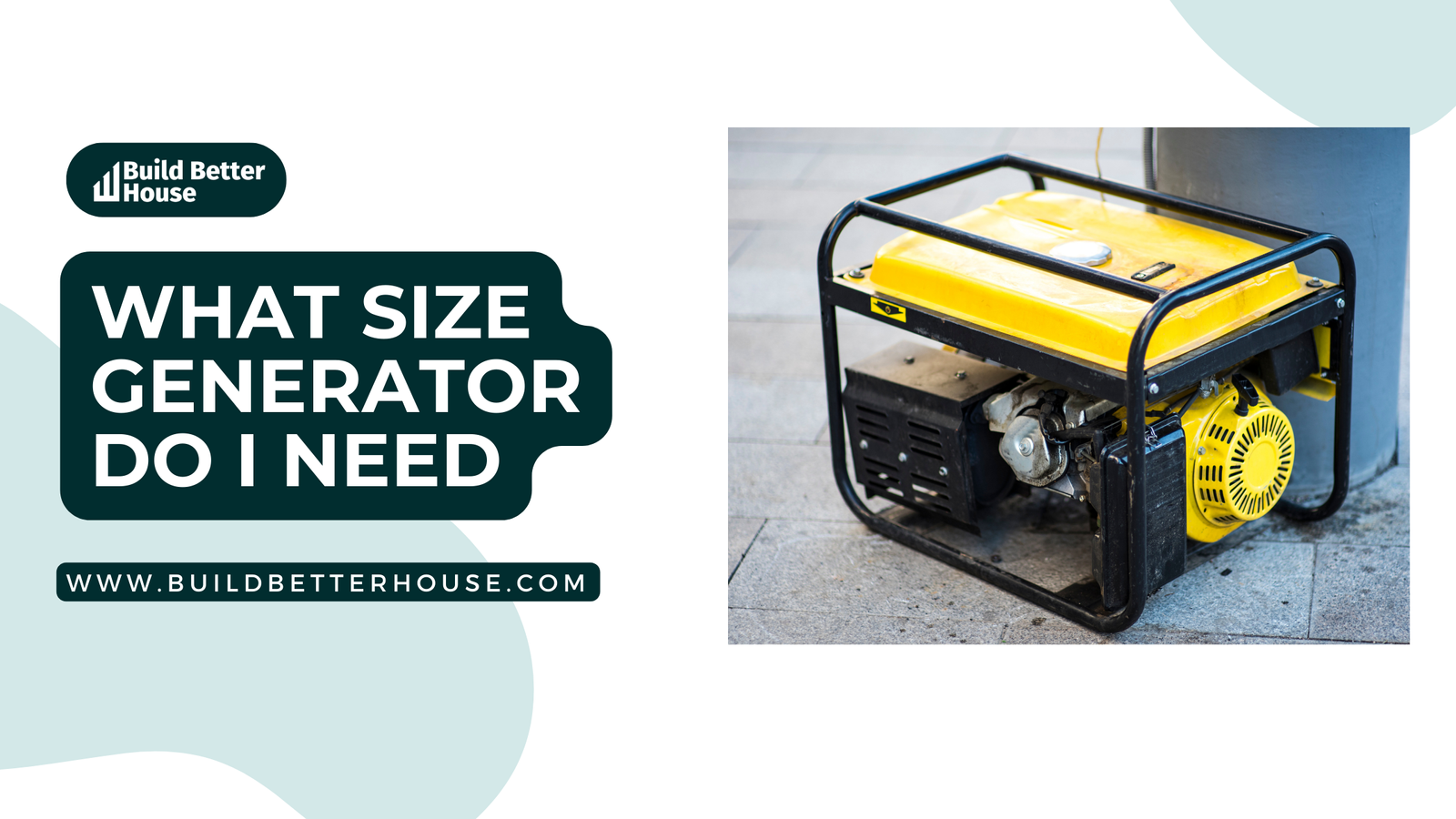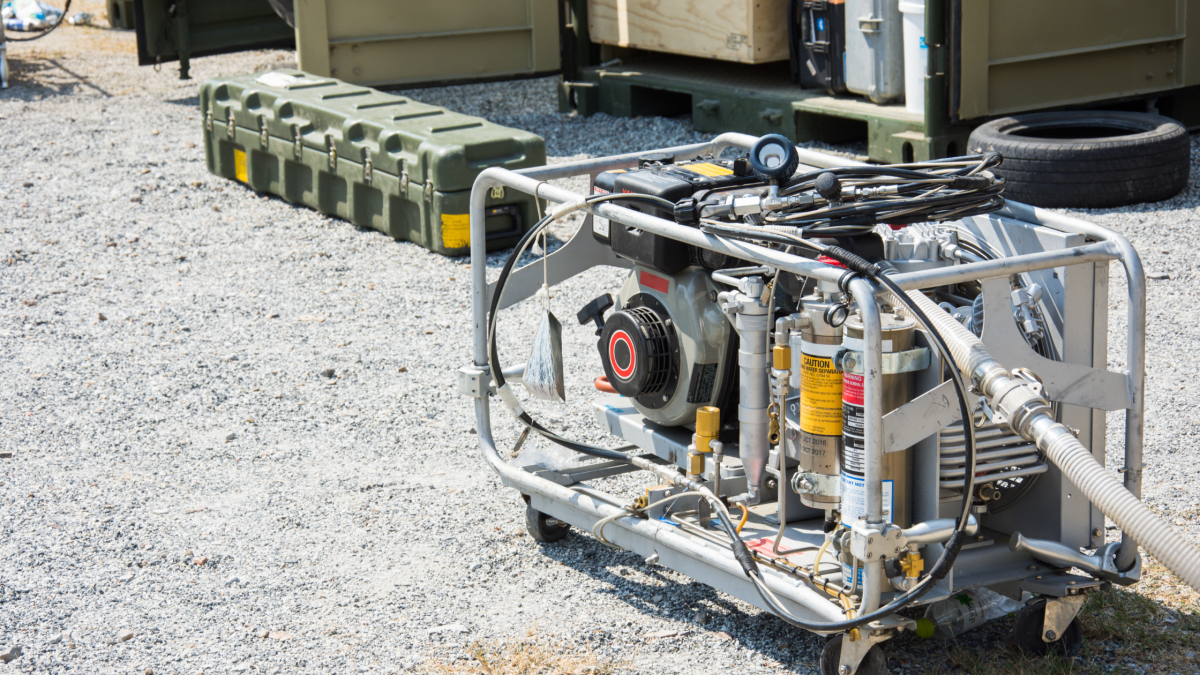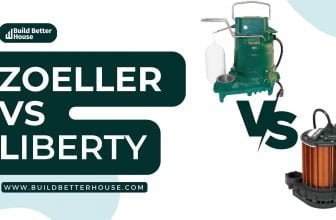What Size Generator Do I Need: A Comprehensive Guide for Buyers

Power outages can be a major inconvenience, and in some cases, even a safety hazard. Many homeowners and business owners rely on generators to provide backup power during a prolonged outage. However, selecting the right generator for your needs can be confusing. One of the most critical factors to consider is the size of the generator.
Understanding your power needs is essential for choosing the right generator. Various appliances and devices require different amounts of power to function correctly. Under-sizing a generator can lead to insufficient power, while an oversized unit can result in unnecessary expenses and fuel consumption. To determine the proper size generator, you’ll need to consider your specific power requirements, calculate wattage needs, and be well-informed about fuel options and consumption.
Key Takeaways
- Determine your specific power requirements by assessing your home or business needs
- Calculate the required generator size based on the wattage of the appliances and devices you want to power
- Consider fuel options, consumption, and efficiency when selecting a generator to ensure it meets your power and safety needs
Understanding Generator Types
When choosing a generator, it’s essential to understand the different types available to ensure you select the right one for your needs. In this section, we will discuss three common types of generators: Standby Generators, Portable Generators, and Inverter Generators.

Standby Generators
Standby generators are permanently installed units that automatically provide backup power to your home or business when the main power grid fails. These generators are connected to your electrical system and can seamlessly switch on during a power outage. Typically, standby generators run on natural gas or propane, but diesel-fueled options are also available.
Advantages of standby generators include:
- Automatic operation during power outages
- Can power an entire house or commercial building
- Long runtime, as they connect to an external fuel source
However, keep in mind that standby generators tend to be more expensive and require professional installation.
Portable Generators
Portable generators are smaller, versatile units that can be transported and set up wherever you need power. They can be used during power outages, camping, tailgating, or anywhere an extra power source is required. Portable generators typically run on gasoline, although some models can also operate on propane.
Benefits of portable generators include:
- Lower cost than standby generators
- Easy to transport and set up
- Suitable for various applications and situations
Remember to use portable generators outdoors, away from windows or doors due to carbon monoxide emission.
Inverter Generators
Inverter generators are a more advanced type of portable generator. They use a unique technology that converts DC power to AC power while producing a clean sine wave, ensuring it is safe for sensitive electronics like computers and smartphones.
Some advantages of inverter generators are:
- Quiet operation compared to traditional portable generators
- Fuel-efficient and produces clean power
- Lightweight and compact design
One downside of inverter generators is that they typically have lower power output than standard portable generators, making them ideal for smaller power needs.
Keep these generator types in mind as you determine the appropriate size for your specific needs.
Assessing Your Power Needs
Critical Appliances
When determining what size generator you need, it’s essential to first identify the appliances and systems that are crucial during a power outage. This includes, but is not limited to:
- Heating and cooling systems
- Refrigerators and freezers
- Medical equipment
- Lighting
- Sump pumps
- Computers and other electronic devices
Once you have identified your critical appliances, consider whether you will need to power them simultaneously or individually during an outage. It’s essential to prioritize their importance and allot power accordingly.
Wattage Requirements
Understanding the wattage requirements of your appliances is crucial when selecting a generator that can meet your needs. You can find the wattage information on the appliance itself or its manual. Alternatively, you can search online for their power consumption.
To calculate the total wattage requirement, you need to consider two specifications: starting (or surge) watts and running (or rated) watts. Starting watts refer to the initial power needed to start an appliance, while running watts are the ongoing power required to keep it running.
Here’s a simple process to calculate your total wattage requirement:
- List each appliance’s starting and running watts: For example, a refrigerator may need 1200 starting watts and 200 running watts.
- Add up the starting watts of all appliances you need to power simultaneously: This is your highest power requirement at any given time.
- Add up the running watts of all appliances you need to power simultaneously: This is your total ongoing power requirement.
Once you know your total wattage requirement, you’ll be able to choose a generator that can support your needs. Keep in mind that it’s a good idea to select a generator with a little extra capacity to avoid overloading or damaging the unit.
Calculating Required Generator Size
When determining the appropriate size generator for your needs, it’s important to consider the running watts and starting watts of the devices you plan to power. This will ensure that your generator has enough capacity to handle your needs without overloading.
Running Watts
Running watts refers to the amount of continuous power that appliances and devices will require to operate. To calculate the running watts needed for your generator, you should first list all the devices you plan to power during an outage. Next, find the wattage rating for each device, which can typically be found on a label or in the owner’s manual. Then, add up the running wattage for all these devices to get the total running watts.
For example, let’s say you want to power the following devices:
- Refrigerator: 800 watts
- Lights: 400 watts
- Television: 200 watts
- Laptop: 100 watts
The total running watts required would be 1,500 watts (800+400+200+100).
Starting Watts
Starting watts refers to the temporary surge in power required when starting an electric appliance, such as a refrigerator or air conditioner. This is often higher than the running watts and must be accounted for when choosing a generator size. To do this, look for the starting wattage of each device and identify the one with the highest starting wattage.
For instance, if the refrigerator has a starting wattage of 1,600 watts, and the other devices do not have any or have lower starting wattages, the additional requirement would be 800 watts (1,600 – 800).
Finally, add this starting wattage value to the total running watts calculated earlier to determine the minimum generator size. In this example, the generator would need to be capable of providing at least 2,300 watts (1,500 + 800) to adequately power your devices.
Fuel Options and Consumption
When considering the right size generator for your needs, it’s crucial to understand the different fuel options and their consumption rates. In this section, we’ll discuss gasoline, diesel, propane, and dual fuel generators.
Gasoline Generators
Gasoline generators are popular due to the widespread availability of gasoline. They are usually smaller, making them convenient for home and recreational use. However, gasoline generators tend to have a shorter lifespan and require more frequent maintenance. Fuel consumption for gasoline generators can vary, but a typical range is 8-20 hours per tank, depending on the generator’s size and load.
Diesel Generators
Diesel generators are known for their durability, longevity, and fuel efficiency, making them an attractive option for industrial and commercial applications. They generally require less maintenance than their gasoline counterparts and can run longer on a single tank of diesel. Diesel generators often boast lower fuel consumption, with a range of between 12-36 hours per tank, again, depending on the size and load.
Propane Generators
Propane generators are considered a cleaner and more environmentally friendly option. They emit fewer emissions and have a longer shelf life than gasoline or diesel. Propane generators provide a quieter operation, which is ideal for residential and sensitive environments. Fuel consumption for a propane generator can vary, but they can typically last anywhere from 10-24 hours per standard propane tank.
Dual Fuel Generators
Dual fuel generators offer the flexibility of running on either gasoline or propane. With this type of generator, you can choose the most available or cost-effective fuel option based on your location and needs. Due to this flexibility, dual fuel generators are becoming increasingly popular. Fuel consumption for dual fuel generators will depend on which fuel option you choose and the generator’s size and load.
Considering Price and Efficiency
When selecting a generator, it’s important to consider both the price and efficiency of the unit. Based on generator types and sizes, the prices and efficiency levels can vary. Let’s examine several factors that can help you make an informed decision based on your budget and power needs.
First, consider the initial cost of the generator. Smaller inverter generators with a wattage output of up to 2,000 watts can cost around $450 to $1,600. These lighter models usually weigh around 60 pounds and are known for being quiet and easy to install. Keep in mind that as the wattage output increases, so will the price.
Next, take into account the generator’s fuel type and consumption. Gasoline-powered generators are common and relatively affordable, with ample fuel availability. However, they may not be as fuel-efficient as other options. Diesel generators generally offer better fuel efficiency and longer durability but are often more expensive. Propane and natural gas generators can be energy-efficient alternatives but may have higher installation and maintenance costs.
It’s also important to focus on the generator’s run time. An energy-efficient generator will maximize the run time on a single tank of fuel, reducing the frequency of refueling. This can contribute to lower fuel costs and overall operating costs over time. Be sure to research and compare run times of different models within your desired size and wattage range.
Lastly, consider the noise level of the generator. Many newer models are designed to operate more quietly, which can be beneficial for residential use, especially in close-knit neighborhoods. A quiet generator will not only contribute to a better user experience but may also adhere to local noise regulations if applicable.
By taking price and efficiency into consideration, you can choose a generator that meets your needs while staying within your budget and maximizing its long-term performance.
Selecting a Generator Following Safety Guidelines
When choosing the right generator for your needs, it’s important to consider safety guidelines to ensure a risk-free operation. There are many factors to understand before purchasing a generator, and considering these guidelines will help you make an informed decision.
First, determine the type of power required for your appliances, either 120 volts or 240 volts. To do so, look for the necessary voltage specifications on your devices. The generator should have enough wattage to power all the appliances you plan to use, so create a list of the devices, calculating their combined power needs.
Safety is crucial when operating a generator. Always ensure your generator is kept in a dry, well-ventilated space. Avoid using it in wet conditions or rain. If needed, protect the generator with a canopy, but never operate it in an enclosed area due to the risk of carbon monoxide poisoning.
When connecting appliances to the generator, make sure to use a heavy-duty, outdoor-rated extension cord. The cord should have a wattage or amperage rating equal to or greater than the total power required by your connected devices. Inspect your extension cord for any cuts, tears, or missing prongs, particularly the grounding pin.
Additionally, be cautious about using electrical equipment that has been submerged in water. Such equipment should be dried thoroughly and evaluated by a professional before connecting it to the generator.
By following these safety guidelines, you can confidently select and operate a generator while minimizing any potential risks.
Conclusion
In the process of choosing the right size generator for your needs, it’s important to first evaluate the total wattage of all the appliances and systems you want to power during an outage. This will give you a clear understanding of your energy requirements and help you make an informed decision. Remember to consult your appliance and systems manuals for the exact wattage numbers, as they can vary among models.
When you have determined your power needs, consult with a professional electrician to ensure that the generator you choose is suitable for your specific situation. They have the knowledge and experience necessary to guide you in the right direction and help you avoid any potential issues that might arise from selecting an inappropriate generator size.
As you consider the various types of generators available in the market, it’s crucial to select a unit that not only meets your current needs, but also allows for future growth and changes in your power demands. This flexibility will provide peace of mind and contribute to the longevity of the generator investment.
By maintaining a confident, knowledgeable, and neutral approach when choosing a generator size for your home, you can feel assured that you’re making the best decision for both your present and future needs. Ensure that you take your time to thoroughly research and understand your options, and consult with professionals when needed. This will guarantee a clear and well-informed decision on the generator that will suit your requirements best.
Frequently Asked Questions
How do I calculate the generator size for my house?
To calculate the generator size for your house, first make a list of the essential appliances and devices you want to power during an outage. Note the running wattage and starting wattage of each appliance. Add up the running wattages to find the total running wattage, and identify the highest starting wattage among your appliances. Your generator should have a capacity that can handle both the total running wattage and the highest starting wattage.
What size generator is needed for specific appliances?
The size of the generator needed for specific appliances depends on their individual power consumption. Here are some approximate wattages for common household appliances:
* Incandescent Lightbulb: 60W-100W
* LED Lightbulb: 6W-12W
* Refrigerator: 150W-400W
Check your appliance’s owner manual or consult manufacturer guidelines for more accurate wattage requirements.
What size generator is best for a 2,000 sq ft home?
To determine the generator size for a 2,000 sq ft home, consider the appliances you plan to power during an outage. For a basic setup with only essential appliances, a generator with a capacity of around 5,000 to 7,500 watts may suffice. However, if you want to power additional appliances or include central air conditioning, a larger generator of 10,000 to 20,000 watts might be required.
Which generator is suitable for a 1,200 sq ft house?
A generator suitable for a 1,200 sq ft house depends on your power needs during an outage. Generally, a 3,000 to 5,000-watt generator could be sufficient for essential appliances such as a refrigerator, lights, and a few other devices. For more extensive usage, consider a larger generator.
What size generator is recommended for emergency situations?
In emergency situations, it’s crucial to have a generator that can power essential appliances and devices. The size of the generator depends on your specific needs, but it’s a good idea to have one that can handle at least 3,000 to 5,000 watts. This will typically cover essential appliances like a refrigerator, lights, and a few electronic devices.
Which portable generator is ideal for my camper?
The ideal portable generator for your camper should meet the power requirements of your camper’s appliances and devices, while remaining lightweight and easily transportable. A generator with a capacity of around 2,000 to 3,000 watts is generally suitable for powering most campers’ needs, including air conditioning, lights, and small appliances. Check your camper’s specific power requirements and compare them with the generator’s capacity before making a decision.






